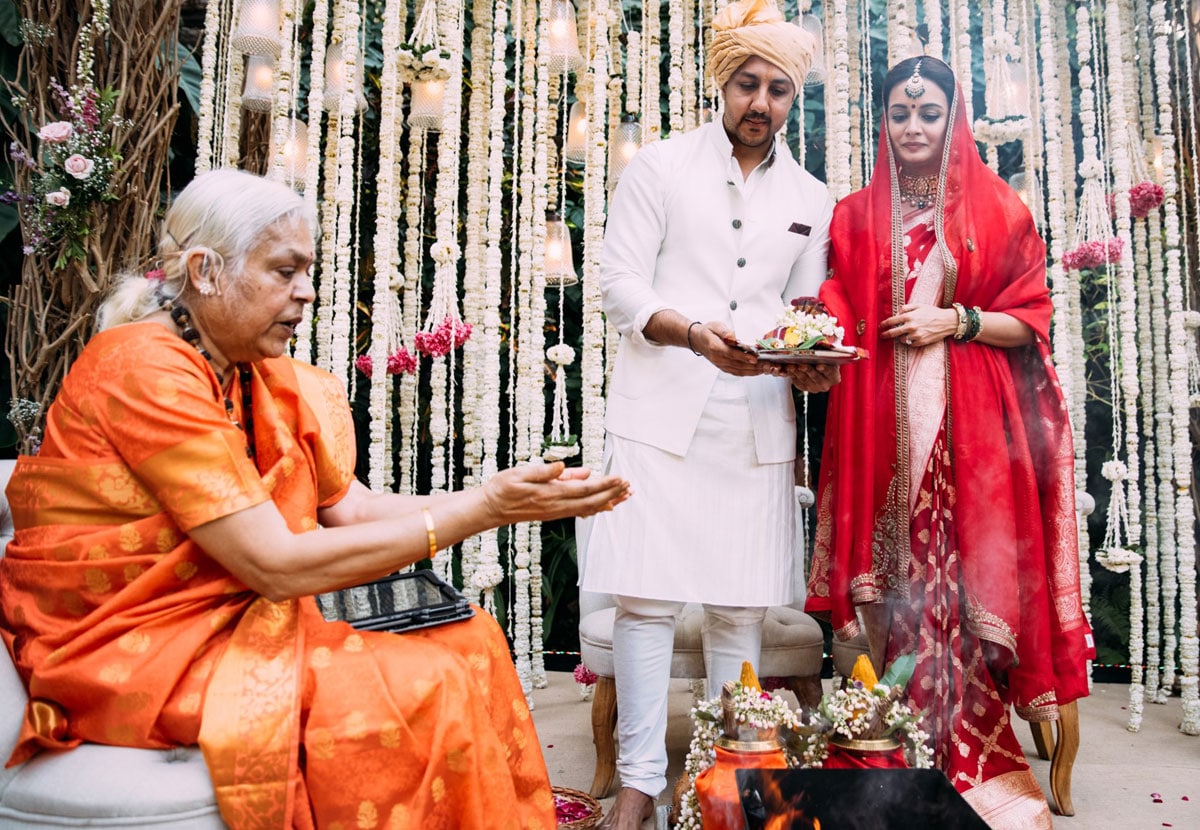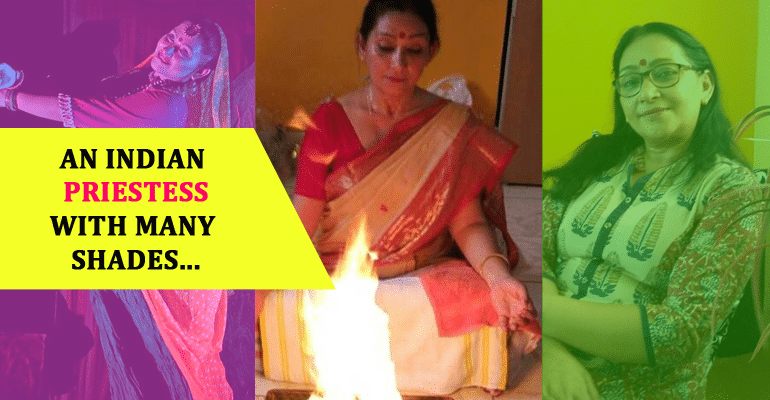Hinduism does not denounce women or consider them impure to perform any ritual. There, it’s the truth.
This has been a burning topic since Bollywood Celebrity Dia Mirza posted a photograph of her recent marriage where a female priest, Sheela Atta, is seen solemnizing the wedlock.

Lately, there have been several instances over the country where Hindu ceremonies were performed by women priests. But it is still uncommon and the men still form the majority in the profession.
Why is it a rare scene in India then? That’s what has raised curiosity. There are even many who find it unacceptable.
To understand the subject in-depth, we contacted an organization in Maharashtra’s Pune that has been training female Hindu Priests for over 20 years now.
Named Jnana Prabhodini, the holistic entity envisions a complete metamorphosis of our ancient society into a vibrant Nation, with spirituality at its core and manifestation of excellence and modernity into an outwardly diverse yet internally integrated human life.
They have been conducting several social and religious drives and programs since 1965. In the year 1991, they started an initiative named Santrika under their Paurohitya department. They follow the ideology of modifying beliefs and rituals as per the time keeping the Vedic essence alive. With this, they have been training priests including women with the knowledge of Paurohitya, i.e. works of a Purohit, the worshipper.
The course is eligible for anyone who has the minimum qualification of passing 12th grade. It teaches the conduction of ceremonies such as Upanayana (thread ceremony), Vivah (marriage), Antim Sanskar, almost all major festival worships, and so on and so forth over an entire year. This year’s batch has 30 women out of a total of 40 pupils who are being trained.
Ujwala Pawar, who overlooks the Santrika told us that in the Vedic age, many women headed the religious ceremonies and it was not uncommon like today.
But as time passed, the world became unsafe for women and they were kept away from public gatherings. As a result, their participation decreased and became negligible.
Hindus today deem menstruation impious and prohibit women from entering temples, let alone perform rituals. They are restricted to a bed or room and not allowed to enter the kitchen or touch anything that’s supposed to remain pure. These practices are the sole reason that the general public presumes a female priest to be unfit.
Contradicting and reasoning with the beliefs Ujwala said, ”Times have changed. Earlier the restrictions in that particular time of the month were set to give leisure to the woman so that she is able to bear the pain in peace. It has nothing to do with impurity. Now there are better ways to ease the pain and control the uneasiness so there’s no point in holding on to the past. If someone is willing to perform it with all due respect and dedication, they should be allowed”.
What’s even more interesting about the rituals that priests trained in Santrika is that they do not follow the mainstream magnanimity of Hindu ceremonies and simplify it and make the participants understand the intent of it.
“In general, priests involve a lot of components in the rituals and make it complex. But we break the complex Sanskrit mantras and make the hosts understand them taking a very short time,” explains Ujwala.
They have also cataloged simplified versions of the mantras into several books that the priests carry to the rituals.
It is truly a commendable act by Dia Mirza to have highlighted the issue. Keeping the pace with time, it is high time we embrace the change.
To book priests, especially women Purohits for your ceremonies, click here.


